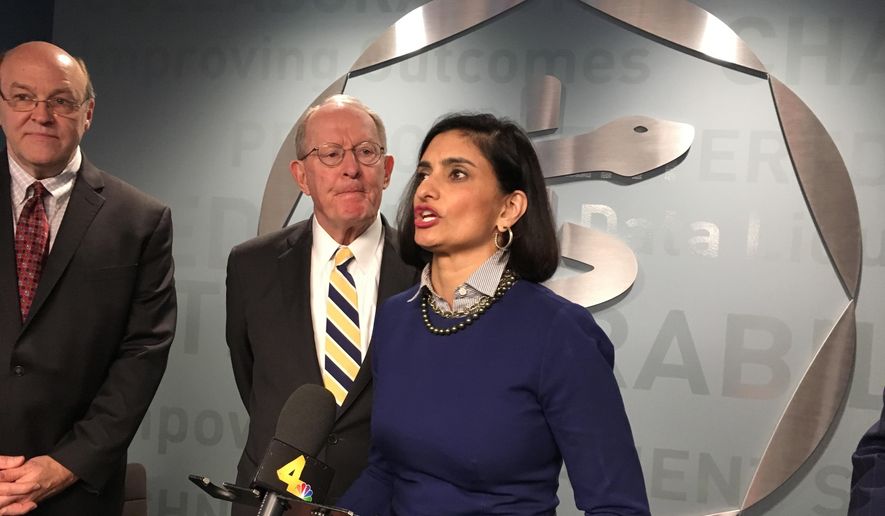The Trump administration on Monday said it will reject Kansas’ push to place a three-year lifetime limit on Medicaid benefits for some enrollees, signaling it is willing to draw the line even as it allows states to revamp their programs in other ways.
Seema Verma, administrator for the Centers for Medicare and Medicaid Services, told the American Hospital Association that Medicaid, the federal-state program for the poor, is a critical safety net for “those that need it most,” so a balance must be struck.
“We seek to create a pathway out of poverty, but we also understand that people’s circumstances change, and we must ensure that our programs are sustainable and available to them when they need and qualify for them,” Ms. Verma said in prepared remarks.
The administration is openly encouraging states to reshape their Medicaid programs by conditioning benefits for able-bodied recipients on “community engagement” — things like seeking work, going to school or volunteering.
New Hampshire on Monday became the fourth state to attach work requirements to its program.
Yet CMS struggled with Kansas’ push to limit Medicaid benefits for some recipients to three years, after which enrollees would be barred from the program.
In March, two dozen House Democrats warned Health and Human Services Secretary Alex Azar not to bless Kansas’ request, saying he did not have the authority to impose lifetime limits.
“The department cannot justify cutting off benefits based on arbitrary time limits to people who qualify under the eligibility rules established by Congress,” they wrote. “Lifetime limits or caps on coverage would be an unspeakably cruel attack on Americans struggling to make ends meet and who do not have access to the same affordable coverage that many Americans enjoy through their employer, which do not have lifetime limits on benefits because of the Affordable Care Act.”
Kansas Gov. Jeff Colyer, a Republican, said his administration decided not to pursue the caps prior to receiving Monday’s rejection letter, “after a series of discussions with CMS in which they indicated they would be unable to approve the measure.”
“While we will not be moving forward with lifetime caps, we are pleased that the Administration has been supportive of our efforts to include a work requirement in the 1115 waiver,” he said, referring to the section of the Social Security Act that lets states tweak their programs. “This important provision will help improve outcomes and ensure that Kansans are empowered to achieved self-sufficiency.”
Hours later, New Hampshire extolled CMS for approving its own waiver.
The state used federal Obamacare dollars to expand Medicaid coverage to people earning up to 138 percent of the federal poverty level, though state Republicans wanted to attach work requirements to the program.
Under the new waiver, able-bodied enrollees aged 19 to 64 must work or perform another form of community engagement for 100 hours each month as a condition of their benefits.
Medicaid recipients who earn more than 100 percent of poverty will also be charged co-pays.
“Work requirements help lift able-bodied individuals out of poverty by empowering them with the dignity of work and self-reliability while also allowing states to control the costs of their Medicaid programs,” Republican Gov. Chris Sununu said. “They help people gain the skills necessary for long-term independence and success. We are committed to helping more people get into the workforce, as it is critical not only for individuals but also for our economy as a whole.”
• Tom Howell Jr. can be reached at thowell@washingtontimes.com.




Please read our comment policy before commenting.